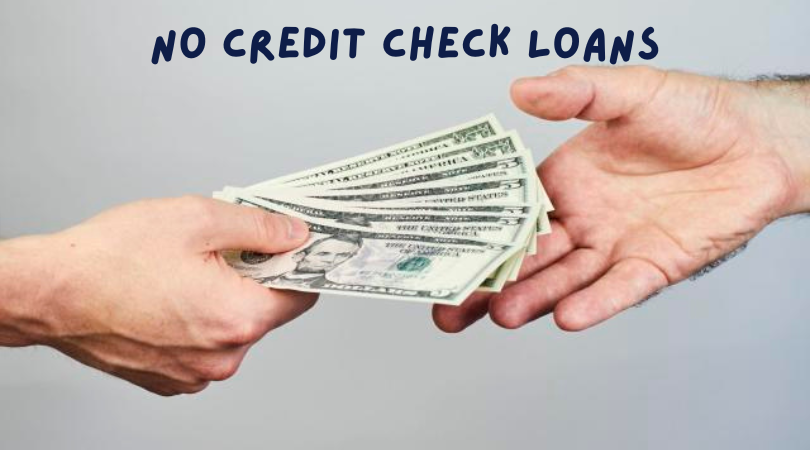Payday Loan With No Credit Check

In an era defined by instant gratification and pressing financial needs, a specific type of lending, the payday loan with no credit check, continues to draw both consumers and scrutiny.
These short-term, high-interest loans, marketed as a quick fix for unexpected expenses, circumvent the traditional credit assessment process, offering immediate funds but often at a substantial cost.
This article explores the landscape of payday loans with no credit checks, examining their prevalence, risks, and potential impact on borrowers' financial well-being.
The Appeal and Mechanics of No Credit Check Payday Loans
Payday loans with no credit check operate on the premise of providing rapid access to cash, typically ranging from $100 to $1,000, without the stringent credit inquiries required by conventional lenders.
Borrowers typically only need to provide proof of income and a bank account to qualify.
The application process is streamlined, often conducted online, and funds can be disbursed within hours, making them attractive to individuals facing urgent financial shortfalls.
The core mechanism involves the borrower agreeing to repay the loan, plus interest and fees, on their next payday.
The lender secures this repayment by either accessing the borrower's bank account directly or requiring a post-dated check for the total amount due.
The Price of Convenience: High Interest Rates and Fees
The convenience of no credit check payday loans comes at a steep price: exceptionally high interest rates and fees.
According to the Consumer Financial Protection Bureau (CFPB), the annual percentage rate (APR) for a typical payday loan can range from 300% to over 600%.
These exorbitant rates significantly inflate the total cost of borrowing, making it difficult for borrowers to repay the loan on time and triggering a cycle of debt.
Fees, such as origination fees, late payment penalties, and rollover charges, further compound the financial burden.
The Target Audience and Potential Risks
No credit check payday loans are primarily targeted towards individuals with poor or non-existent credit histories, who often lack access to traditional forms of credit.
This demographic frequently includes low-income households, individuals facing unemployment, and those struggling with unexpected medical bills or car repairs.
While these loans may seem like a lifeline in times of crisis, they carry significant risks.
The combination of high interest rates and short repayment terms can lead to a debt trap, where borrowers are forced to repeatedly renew or "rollover" the loan, incurring additional fees each time.
This cycle can quickly escalate, turning a small, short-term loan into a substantial and unsustainable debt burden.
Moreover, the lack of credit checks does not equate to a lack of consequences for non-payment.
Lenders may still pursue collection efforts, including contacting borrowers' employers and referring the debt to collection agencies, which can negatively impact their credit score and financial reputation.
Regulatory Landscape and Consumer Protection
The regulatory landscape surrounding payday loans is complex and varies significantly by state.
Some states have enacted strict laws, capping interest rates and fees, limiting loan amounts, and restricting the number of rollovers allowed.
Other states have more permissive regulations, allowing for higher interest rates and fewer consumer protections.
The CFPB has also taken steps to regulate the payday lending industry, including proposing rules that would require lenders to assess borrowers' ability to repay the loan.
However, these rules have faced opposition and are subject to ongoing legal challenges.
Consumer advocacy groups, such as the Center for Responsible Lending, actively campaign for stronger regulations and advocate for alternative, more affordable financial products for low-income consumers.
Alternatives to Payday Loans
For individuals facing financial emergencies, exploring alternatives to payday loans is crucial.
These alternatives may include:
- Seeking assistance from local charities or non-profit organizations
- Negotiating payment plans with creditors
- Borrowing from friends or family
- Utilizing credit cards with lower interest rates (if available)
- Exploring personal loans from credit unions or community banks
Financial literacy programs can also empower individuals to manage their finances more effectively and avoid relying on predatory lending practices.
Conclusion
Payday loans with no credit check offer a seemingly quick and easy solution to financial difficulties, but their high cost and potential for debt traps demand careful consideration.
Borrowers must be fully aware of the terms and conditions of these loans, including the interest rates, fees, and repayment schedules.
Policymakers and regulators must continue to strive for a balance between providing access to credit and protecting vulnerable consumers from predatory lending practices, while individuals should prioritize exploring alternative solutions and enhancing their financial literacy to avoid the pitfalls of no credit check payday loans.





![Payday Loan With No Credit Check 1 Hour Payday Loans No Credit Check | [year] Guide](https://avocadoughtoast.com/wp-content/uploads/2022/02/1-Hour-Payday-Loans-No-Credit-Check.png)












